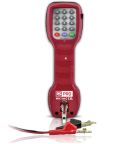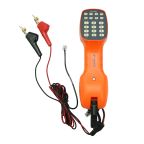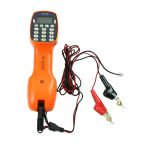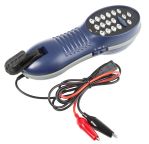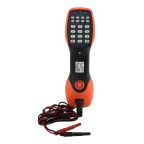Phone Line Testers
Phone line testers are used in the installation and maintenance of phone lines. They are sometimes referred to as Lineman's Sets or Butt Sets.
Phone line testers resemble a traditional phone handset with an earpiece, mouthpiece and dial keypad. They also have leads which connect to a landline circuit for testing the telephone line. These test leads are commonly make a connection using crocodile clips or a BT plug. Crocodile clips connect to bare wires. BT sockets, or British Telephone sockets, are a popular connector developed by British Telecoms. They are found in many telephones and conform to BS 6312.
The majority of phone line testers are use with analogue circuit landlines. Some may also work with digital circuits, although this is not as common.
Why use a phone line tester?
It is important to test a landline during installation, but phone line testers are also used to locate issues in a faulty line. For example, the tester may detect digital traffic or a hazardous voltage. They can also be used for over-current protection and mains cross protection.
Where are test phones used?
- Telecommunications
- Servicing and maintenace
- Network engineering
- Research
Additional features:
Phone line tester handsets offer additional features which are worth considering when making your decision. This includes:
- ADSL compatibility
- Water resistance (IP rating)
- Digital Service Protection (DSP)
- Alarms for overvoltage
- Microphone mute
- Volume boost
- Hands-free options
- Redial
- Auto power down
- Quick-change cord
- Polarity indicator
